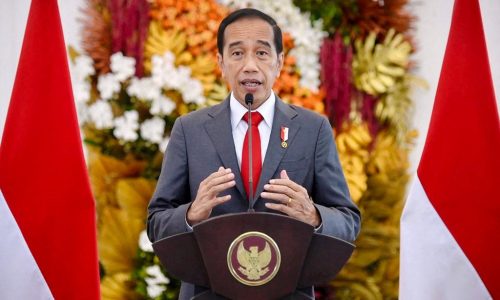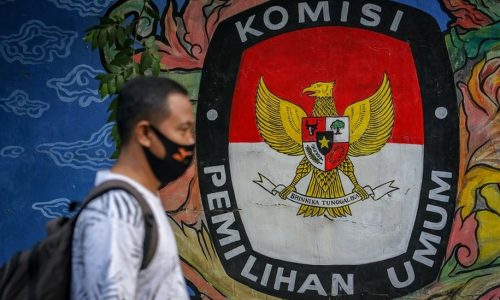The Ministry of Public Works and Housing (PUPR) has filed a lawsuit against a ruling by the Central Information Commission (KIP) which is in favor of the complaint submitted by the Mining Advocacy Network (Jatam) East Kalimantan chapter regarding information disclosure on water and Sponge City projects in the Nusantara Capital City (IKN).
The lawsuit was filed with the Jakarta State Administrative Court (PTUN) on April 2, 2024 about a month after the KIP issued the ruling, which approved Jatam East Kalimantan chapter’s lawsuit in part, including access to a copy of the principle approval document on dam construction and intake water projects in Sepaku Semoi, North Penajam Paser regency, East Kalimantan, as well as a copy of documents on dam design, a copy of permit approval, and the Environmental Impact Analysis (AMDAL).
Jatam East Kalimantan chapter earlier filed an information lawsuit with KIP because the PUPR ministry refused to provide information regarding seven water projects and “Sponge City” at the IKN. These documents are important in understanding the impact of those projects on the environment and indigenous communities around the IKN.
An activist with Jatam East Kalimantan chapter, Mareta Sari, said on Tuesday, May 7, 2024, that it took them 1.5 years to get their complaint heard.
She said the undisclosed data and information on water projects have become the basis for the government to claim that the new capital city will be an ideal city with Smart, Forest City and Sponge City principles. The government, she added, also claims to implement 100 percent clean energy and low carbon energy sources to pursue the target of 100 percent renewable energy installations and Net Zero Emissions by 2045.
She said further that the government also uses the term “Sponge City” as a pretext to deal with criticism over the threat of water crisis in the landscape around IKN.
The National Development Planning Agency (Bappenas), according Mareta, claims this concept is to restore the natural cycle of water, to harvest water for additional water availability, for flood hazard reduction and ecological preservation. The IKN Authority (OIKN) has partnered with Deltares, a Dutch consulting firm, and is supported by the Asian Development Bank (ADB) in the projects.
Mareta cited that JATAM East Kalimantan had met and shared the findings on the alleged human rights violations and information concealment with the Dutch Deputy Minister for Foreign Economic Relations, Michiel Sweers, on April 26, 2024 in Balikpapan when a Dutch government delegation visited IKN.
The mega water projects such as dams, intakes, river pipeline transmission and flood management projects, which are packaged under the name of the “Sponge City” project, are each built on watersheds in the Sepaku sub-district. The Sepaku Semoi Dam is located on the Tengin River, while the Sepaku Intake is built on the Sepaku River.
However, Mareta said, these projects are nothing more than civil engineering and knowledge manipulation to dispossess, expel and destroy the social, economic and cultural interactions between the river and the local Balik tribe.
The project on the Sepaku River is suspected to have caused damages to the Sepaku community. Dozens of Balik tribe families have lost access to the river. It is difficult for them to get water to fulfil their daily needs: they now have to buy drinking water unlike in the past when they just needed to get them from the river, they also have to wait for water distribution from the dam project contractor. These exclude the destructive power of the Sepaku-Semoi dam construction on the Tengin River.
“Even the community had to relocate about 35 graves of Balik tribe ancestors which had been there for 200 years. The company treated these graves like goods that could be bargained for and bought,” Mareta said.
She added that hiding information about the Sepaku-Semoi Dam and Sepaku Intake Project, which is part of the new capital city project, is a crime that should not have been committed by the Ministry of PUPR in embarking on a project that is intended for the public interest and has been funded by the government.










